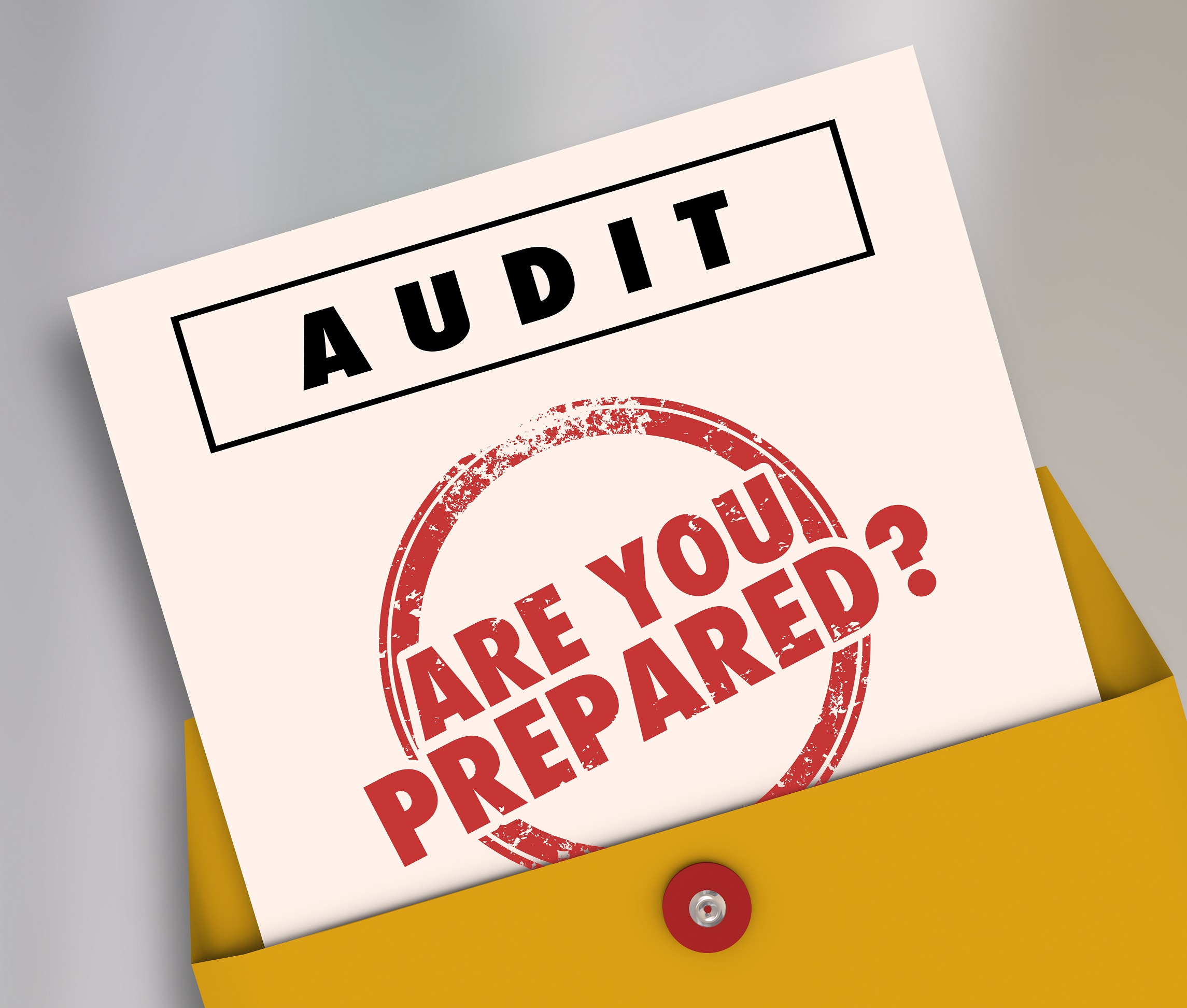Attorneys run complex businesses, with varying financial records that can boggle the minds of other business folk. The IRS knows that these businesses are difficult to manage, keep track of, and file taxes accurately on a consistent basis. For several years, it seemed to be the goal of the government to actually target attorneys for tax audits¹ because of the belief that many attorneys were not filing their taxes correctly, or even failing to file at all. For that reason, attorneys must stay vigilant and expect that at some point in their practice, they will probably face an IRS tax audit.
Now a tax audit usually terrifies the business owner, but it really doesn’t have to be scary. All you have to do is be aware that it could happen, and then prepare for it. It isn’t something random like a tornado or a flood. You can know exactly what to expect, which is why you shouldn’t be afraid of facing one. Of course if you are not following the proper accounting procedures or tax laws, you should be very afraid! But you are hopefully a competent attorney with a good conscience and a commitment to following the laws of the land, and so you will be in the clear. As an attorney you know about loopholes and techniques, and these types of strategies might be used against you by the IRS. Your mission is therefore a straightforward one – know what to expect and prepare for it.
Truthfully an auditor doesn’t want to have to fight with the law practice in order to do her job. She simply wants to have the needed information at her fingertips and get through the task quickly so that everyone ends up happy. What better gift could you give than to be 100% cooperative, perfectly organized, and completely thorough in your record keeping? This will also end up being an amazing gift to yourself and your business. You may even end up with extra tax refunds and a whole lot of happy clients and future clients who know they can trust you with not only their legal cases, but also their hard-earned dollars.
So what happens in a tax audit? First the law office will receive a letter from the IRS² informing them that the audit is going to take place. The letter will present the attorney with the list of items that the auditor will require in order to perform a proper report. Bank statements, procedures for the financial recordkeeping, and all sources of income will be at the top of the list. If you are already following the GAAP (Generally Accepted Accounting Procedures), then you should have these items done already, and can quickly gather them up for presentation.
Auditors are looking for good internal controls, careful monitoring of all the money coming into the law practice, correct distribution to the proper trust and interest accounts, and of course all sources of income that the attorney may have. Obviously not all income is made in the courtroom. Attorneys can find multiple ways to use their law knowledge to make income, such as speeches, writing, consulting, and much more.
Another important part of an audit is being able to prove all of your financial numbers. You need receipts and records for all expenses, income, etc. A paper trail (or digital trail) should follow every dollar and remain on the records for years. The IRS can legally audit a business up to 6 years after a tax return has been filed³.
In summary, when you get that letter or email informing you of a coming audit, be prepared in these ways:
- Have bank statements stored in an online vault, organized by account and date for every single bank account the law office utilizes, including investment accounts, savings, etc.
- Have a written system outlining the responsibilities and methods of all bookkeeping and financial management in the practice. The owner should list out what she does with the records and money, and the other staff should have listed what they do, as well as the bookkeeper stating what she does on a monthly basis.
- Save all of the receipts for business purchases, including meals, gas, client costs, and office supplies. Scan and store them online in order to preserve their readability4.
- Outline the type of financial methods your practice uses, be it collecting money upfront, or being paid in cash, or getting a percentage of the money won in cases.
- Keep a log of the time spent on each client in order to back up the billing questions
- Know the confidentiality laws so that the IRS cannot ask for too much client information
- Brush up on the questions the auditor may ask by examining their training documents here: https://www.irs.gov/pub/irs-utl/attorneys_atg.pdf
- Keep your records as up-to-date as possible
In the end, you may actually be thankful for the audit, because often weaknesses or even fraud gets revealed through these deep dives. You should also consider hiring an audit company to go over your books once in a while in order to be sure things stay in perfect order and you are getting all of the tax breaks that are available. Audits don’t have to be scary. Just be prepared and you will rest easy.
¹https://definitions.uslegal.com/p/project-esquire/
²https://www.irs.gov/newsroom/how-to-know-its-really-the-irs-calling-or-knocking-on-your-door
³https://www.forbes.com/sites/robertwood/2019/10/08/irs-audit-period-is-3-years-6-years-or-forever-how-to-cut-your-risk/?sh=54676d7c7ba6
4https://schanelcpa.com/does-irs-allow-digitized-receipts/
